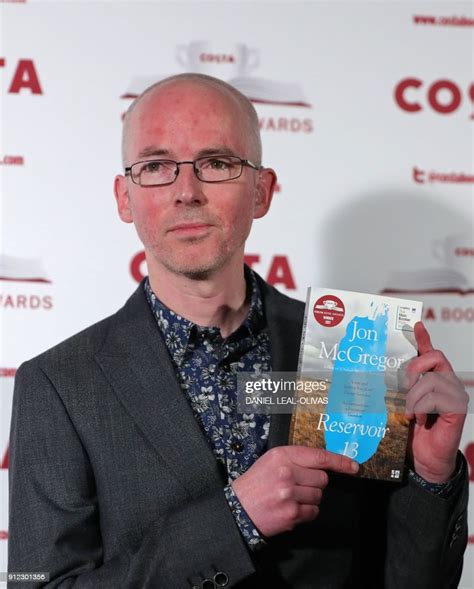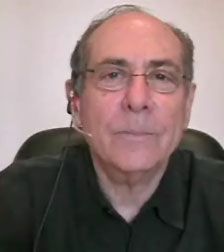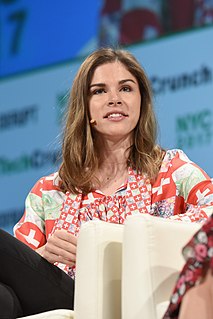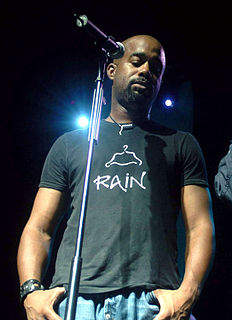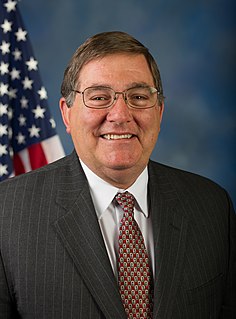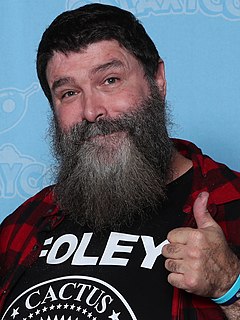Top 294 Blogs Quotes & Sayings - Page 5
Explore popular Blogs quotes.
Last updated on April 19, 2025.
I write incessantly, I'm very productive, I write for a dozen publications and blogs and websites. A lot of very hardcore political stuff. I write a weekly feature. I express myself. But when time comes to make music [with the] same absolutely unleashing of total honesty zero inhibitions, it just flows like a stream of conscientiousness because I will not be silenced no matter what my point might be.
Right after September 11, 2001, there weren't really any blogs in China, but there were a lot of Chinese chatrooms - and there were a lot of conversations in which Chinese netizens were saying things like, 'served them right.' That was definitely not the official Chinese government policy - which condemned the terrorists.
Nowadays I imagine people find freer and more accepting venues in blogs, on Tumblr and Instagram and Facebook, in the riot of shouting that trails in the wake of every news story. So there's always the pandemonium of the Internet, if you need to get your lunatic opinions out in public. I find most of that stuff a little insane-making and my preference is to encounter personal essays in the relatively sedate and stable universe of print, in literary quarterlies, magazines and books. But I'm sure you can find plenty of good stuff in lonely outposts all across the World Wide Web.
Importantly, companies are using social media to do things that go way beyond just chatting up existing customers on Facebook. Sales departments use social to nurture leads and close sales. HR posts job openings and vets applicants. Community and support squads mine networks, blogs and forums with deep listening tools.
A lot of the reason why the debate is acrimonious is because of the 24/7 news cycles, blogs, and people being able to just throw something out there in order to get attention. And I'm not going be out there doing the same thing, trying to trash my successor or call attention to myself. I hope that's a positive contribution to the dialogue.
I think maybe 50 years ago people and businesses felt like they had to choose between maximizing profits and making customers happy or making employees happy, and I think we're actually living in a special time where everyone's hyperconnected, whether through Twitter or blogs and so on. Information travels so quickly that it's actually possible to have it all, to make customers happy through customer service, to make employees happy through strong company cultures, and have that actually drive growth and profits.
I don't think blogs can make or break a candidate. I think they're going to be important to a certain degree. I think they can help somebody who's lesser known, somebody's who's lower down in the food chain politically. I think somebody like a Hillary Clinton doesn't necessarily need bloggers for people to know who she is and what she stands for. I think she's got all the - she's got a big enough soap box - a bigger soap box than she'll ever need that we could ever provide in the blog world.
God uses millions of no-name influencers every day in the simplest selfless acts of service. They are the teachers whose names will never be in the newspaper, pastors who will never author a book, managers who will never be profiled in a magazine, artists whose work is buried in layers of collaboration, writers whose sphere of influence is a few dozen people who read their blogs. But they are the army that makes things happen. To them devotion is its own reward. For them influence is a continual act of giving, nothing more complicated than that.
I'm especially interested in what I call practitioner criticism, which is when people who practice an art form start writing about it on blogs. I think that's an immensely important development. I want to see much, much more of that. People who make music who are verbally articulate. And not all musicians are verbally articulate. But those who are should be encouraged to write about what they do and their perception of what other people do. It makes the discourse smarter.
I felt the call to this industry because I enjoy broadcast journalism. I'm steeped in the news because I enjoy the news - I like reading papers; I like reading the blogs. I love talking to newsmakers and pundits, for that matter, about their opinions. I'm an information gatherer by nature, so that's what attracted me about this industry.
I follow blogs, particularly all the main political ones - Guido Fawkes, Iain Dale, Coffee House, Paul Waugh, Iain Martin in the Wall Street Journal, and so on. And some American ones, like the Huffington Post, Gawker, Boing Boing; or Eater and Daily Candy, also American, which are about where to go to eat.
Now an audience of more than 1 billion people is only a click away from every voice online, and remarkable stories and content can gain flash audiences as people share via social networks, blogs and e-mail. This radically equalizes the power relationship between, say, a blogger and a multibillion dollar corporation.
I've been physically assaulted several times in the street. Somebody once pushed me into traffic. I've been followed into gay clubs, for example, where alt-right blogs would send photographers to take pictures of me. That has been not necessarily the easiest to deal with but, again, you start to actually just get used to it.
Being the recent accessibility of rare vinyl and cassette music via blogs, as well as the digital backlash which is driving more people to crave the tangible - most of these minimal wave releases are hand-numbered vinyl editions, which adds another level to the listening experience. They can listen to an LP and it's there for them to look at, examine its cover art, and hold whilst buying and downloading music in digital form remains such an ephemeral experience.
People have not changed. The media and its love for the fashion world behind the scenes has changed, giving people more access to changing tastes and opinions everywhere. There has been a shift in the last few years, with the new exposure of personal styles on blogs and Instagram and websites, so people are more interested now in showing their own fashion sense and expressing their own style without copying an entire look from an ad campaign. Because of that, stores need to move toward more personal edits and styling.
I know this sounds weird, but I was into storyboarding when I was younger. I loved coming up with my own style through fashion blogs and magazines. But I've never liked trying things on. I don't know why. It was more about making mood boards. I've loved fashion my whole life, but more the imagery of it than actually wearing it.
[The internet has] already had a huge impact in the sports world, and the play-by-play guys that are not paying attention to it are losing out. They're losing out on getting the real pulse of a game that they're covering. My point with blogs and with podcasts is that it can't be the basis of your prep work, there has to be much more. We understand that. But, it has to be at least a part of what you're doing. If you're not paying attention to it, then you're not seeing the full picture.
The best benefit that blogs can provide a campaign is actually to build buzz. It provides earned media for the candidates the bloggers are supporting. It generates attention from traditional party organizations, the labor unions. And the issue groups that might not have even known that race existed and not have considered putting money into it now realize, 'OK, this is getting a lot of buzz, we're going to start putting resources into the race.' It motivates a lot of big-dollar donors to put money into these candidates.
It seems like journalism over here in UK, in general, is at a higher level: not overrun by all these teeny little blogs. There's more of a historical context for it or something. It seems like people review something or take a listen to something and they really do their homework. That's just what it seems like.
There is a movement happening, a quiet one. A low-profile, low-resolution revolution. Comprised of writers and dreamers, of guerrilla artists and thought-ninjas. Those with something to say. They communicate through text inscribed on true public spaces, rather than blogs and forums. Choosing fewer words, even without being bound by 140 character limits. Using ink instead of pixels. Sending messages in living, breathing space. Pens scream louder into the void. Even if permanent ink is not aptly named.
I had people read it early on and, you know, well-meaning people said to me, you should take out the blogs. I didn't get much positive feedback. Only because most of these people were protective of me - it was sort of like a "tone it down, make it easier to swallow" kind of thing. And I just thought if I do that then it's not the book I want to write.
Most kids come home from school. They don't go to their TVs first. They go to the Internet. They check their emails, or some blogs, or some sites. Then they go watch TV. Other people are at work all day 9-5 in front of a computer. They see certain clips. We're not going to hide the fact that people use the Internet. We're going to try to be as interactive as possible with our fans. I'm currently on Twitter and Facebook and Flicker and Dig. I'm on all that stuff.
The biggest journalistic game-changer of our time has been the rise of social media and the overgrowth of faux news sources - league- and team-sponsored blogs, player tweets, fanboy sites, rumor mills - churning bits of information and speculation into a clattering fog storm. Who will cut through the drivel and whim-wham to tell us what's really going on?
I wanted to learn how to blog, so I was playing around with Wordpress and Typepad and Blogger, starting all these different blogs just to learn how these things work. I had a fake Sergey Brin blog, an anonymous, fake Ph.D kind of blog. I did it for, like, I don't know, six weeks, and the Steve Jobs one just caught on.
As Barbara Streisand discovered, adopting a militaristic posture against a tech-savvy mob of civil libertarians is not going to be of much help: Many of them run their own servers and blogs - and have thousands of friends on their social networks - so overzealous attempts to silence them only lead to wider dissemination of sensitive information.
The reason I love blogs so much right now is that I am seeing more critical voices appear, and that's kind of thrilling. I think a lot of critics in their forties or even their thirties have had their voice scared or trained out of them by the academy. I have nothing against the academy. I think it's brilliant and fantastic, but I also think that it's become almost monolithic. The same way a lot of art looks the same, a lot of writing can sound the same and quotes the same theorists.
It is true that authoritarian governments increasingly see the internet as a threat in part because they see the US government behind the internet. It would not be accurate to say they are reacting to the threat posed by the internet, they are reacting to the threat poised by United States via the internet. They are not reacting against blogs, or Facebook or Twitter per se, they are reacting against organizations like the National Endowment for Democracy funding bloggers and activists.
Many atheistic books and blogs seethe with anger. Remarkably, the authors do not limit their anger to Christians. They seem most livid with God. I don't believe in leprechauns, but I haven't dedicated my life to battling them. I suppose if I believed that people's faith in leprechauns poisoned civilization, I might get angry with members of leprechaun churches. But there's one thing I'm quite sure I wouldn't do: I would not get angry with leprechauns. Why not? Because I can't get angry with someone I know doesn't exist.
What I'm interested in is how your career choices can affect your private life, romantically or with your mom, your relatives, your friends, your hometown, and how media manipulates information - not newspapers or blogs, but the magazines that people impulse-buy that tell you what's hot and who's not.
I study harder now than I ever did in college or high school. There's just so much pressure to know what's going on, and I feel like, especially with social media, there's always new information coming out on the teams, the players, the coaches, and the games. You can never be fully read enough, and I'm just constantly reading articles, watching games, and trying to read blogs.
There will be this mix of people like me who write for major national newspapers and amateur critics, practitioner critics, whose primary way of distributing what they talk about is through blogs and on the web. The line between professional and amateur criticism will become increasingly blurred. The problem here is that if you want to do this for a living, you have to be able to earn a living doing it.
I think the people who are sitting in their living room doing those, 'Let's take country music back' blogs and all that stuff, that's crazy to me. No one's saying that about rock & roll, and no one sounded like the Beatles since 1960. No one says that about R&B, and no one sounded like the Commodores since 1970.
Some of the power has shifted from companies to people. Using social media tools (blogs, wikis, tagging, etc.) more individuals are creating semi-spontaneous 'groundswells' of opinions to which companies and other institutions are realizing they must respond. From marketing to consumers organizations are being pulled into engaging with individuals.
I think people who read Internet blogs are usually trying to fit it in during a busy part of their day, and there's only so much information that you digest. Whereas an experience with a book is a little more comfortable, and I think people are a little more willing to really delve into information.
I like to be challenged with language, so I start to do texts for my blogs that people can download, can spread. There is no commercial interest behind it. It's only for fun, like doing something that you really enjoy to do. I have texts that I write specifically for the internet and I put them there. I am interested in how readers also respond to the texts that I write to them.
Models can be people, too. But the only way to do that is to kind of step up and keep doing new things that no one has thought of, from new websites to new blogs, a newscast, doing speeches, talking to kids. It kind of opens a new headline every time: 'Oh, a model hasn't done this before; a model hasn't done that before.'





















